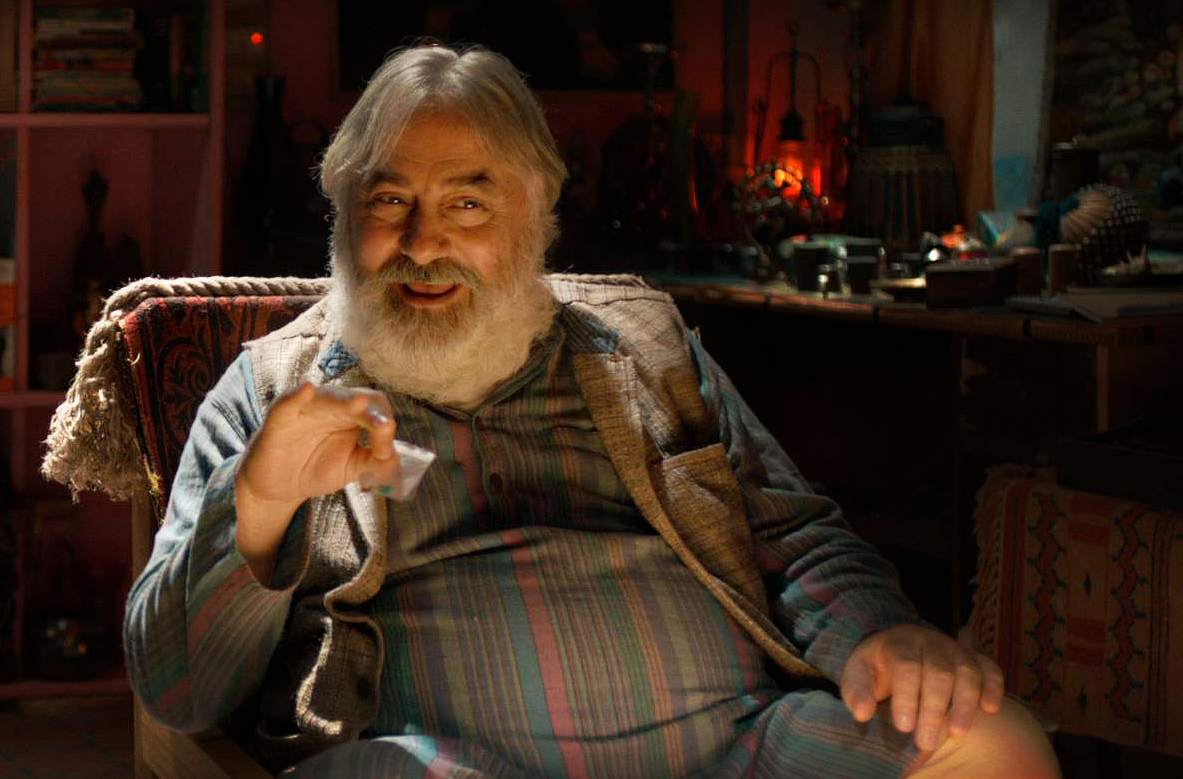In Conversation With Barry John: Movie MCream Releases in July

It was the hippie era, the days of flower power, classical music and the Beatles. People were searching for something meaningful to live for; India with its pop gurus, Maharishi Mahesh Yogi, Meher Baba and Osho among others, was an exciting place to be in. It was in the midst of all this, that a young Yorkshire lad found himself here — this Englishman was none other than the legendary theatre doyen, Barry John
Barry's arrival in Delhi turned out to be quite memorable. Even today he remembers the strange sight that met his eyes He laughingly recounts, "there were hippies in Connaught Place around the colonnades, and at Hanuman Mandir, with begging bowls just begging.” “I didn't want to get into that", he confesses with a wry smile.
Sitting in his acting studio in Mumbai attired in his iconic black t-shirt and tracks, his casual yet embracing demeanour puts one instantly at ease. He recounts his early days at Leeds, were he got ample opportunity to pursue what he loved most -- theatre. Kalidas, was his first play. His hopes of being an actor were, however, dashed badly, when he was told rather baldly, that he was not actor material but could study to be a theatre teacher.
Undaunted, he chose to travel instead . His palpable attraction for the East and a great desire to visit India brought him here. Barry was just 22 years old when he arrived in Bangalore , ostensibly to teach English. However, theatre was his first love and he could not keep himself away from it for long. In 1970, Barry joined the Yatrik theatre group in Delhi and from then on there was no turning back for him.
Today, Barry's name is synonymous with the Indian theatre. He is renowned as a theatre actor, director and as a phenomenal teacher. He founded TAG (Theatre Action Group) in 1973. Barry nostalgically reminisces about the seventies when he first started out as a young actor. He says, “it was the golden age of theatre”, and explains, "It was the golden era largely because of the talent that took theatre to an altogether new level.” Mostly university students like Rajiv Malhotra, Lilette Dubey, Mira Nair, Khalid Tayabji — big names today — were at the heart of the work. “'The first five years,” Barry says, “were wonderful.” “We were on a high doing five to six productions a year. It was hectic but so rewarding.”
In those days the Delhi theatre scene was alive and bustling. Apart from English theatre, there was a lot of experimentation taking place in Hindi theatre too. Ebrahim Alkazi, head of the National School of Drama, was churning out wonderful productions with actors like Manohar Singh, Surekha Sikri, Pankaj Kapur and others. It was an impressive list of creative personalities working in Delhi at that time, many of whom were to go on to achieve both fame and success. “But those days are gone…” submits Barry wistfully. After 25 years of spearheading TAG, he confesses, “it was the end of an era, both for the group and for the theatre.”
The didactic and insensitive approach of the Indian bureaucracy to art and artistic pursuits has, more or less, sounded the death knell of all such institutions. ''Theatre, was never a priority with the government. There was no support, no significant financial aid and in the face of such insurmountable odds, it faded into an obscure space. Idealism cannot survive in such infertile ground,” confesses Barry with a resigned expression on his face.
But the ever-feisty Barry, has kept the craft alive for himself and for the many, who have had the opportunity to be trained at his acting studio in Andheri (West), Mumbai. Standing between two illustrious production houses, Yash Raj and Balaji, is Barry John’s Acting Studio. This is where Barry spends most of his time now. “Talent in India is at par with talent anywhere in the world,” says Barry. His studio has given Bollywood some of its best actors — Shahrukh Khan, Manoj Bajpayee, Shiney Ahuja and Freida Pinto to name just a few. This self-effacing man, however, takes no credit for their success. When asked about Shahrukh Khan, the most famous of his protégées, he replies, “the credit for his phenomenal success goes to the superstar himself.”
Barry occasionally dabbles in films. “I never considered myself a film actor, it was through the force of doing theatre, of being well known, that I got roles,” he confesses candidly. His earlier films include Shatranj ke Khilari, Tamas, Kissa Kursi Kaa. He, however, is not very proud of his earlier work, as he only did stereotypical Raj characters, “I was up to my teeth with boredom doing these roles,” he confesses honestly. It has been only lately, that he is being offered interesting roles, “more changeling roles'” as he puts it. He mentions the Great Indian Butterfly where he plays a Portuguese naturalist and writer. “It was offbeat but interesting,” he says. Another favourite of his is his role as a CIA agent in Tere Bin Laden, which turned out to be a huge box office success. More recently, he essayed the role of Vishnu Das (an ageing hippie) in the indie film M Cream. Referring to the character, Barry muses, “I could have been him anyway, had I gone off the rails a bit”, and laughs.
Barry, today, at 69, is still raring to go. He plans to develop an actors' retreat in the Himalayas. He also wants to make a film or two and to write his memoirs, not so much about himself as about the craft of acting. His years sit humbly on his broad shoulders. He says, “I have spent so much time working with actors, doing theatre and films, and have things to share that may interest others.”



